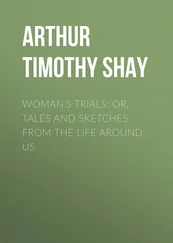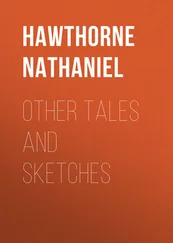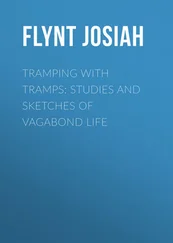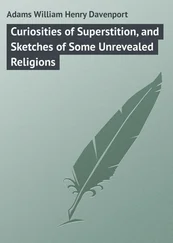David Bone - Scottish Football Reminiscences and Sketches
Здесь есть возможность читать онлайн «David Bone - Scottish Football Reminiscences and Sketches» — ознакомительный отрывок электронной книги совершенно бесплатно, а после прочтения отрывка купить полную версию. В некоторых случаях можно слушать аудио, скачать через торрент в формате fb2 и присутствует краткое содержание. Жанр: foreign_antique, foreign_prose, на английском языке. Описание произведения, (предисловие) а так же отзывы посетителей доступны на портале библиотеки ЛибКат.
- Название:Scottish Football Reminiscences and Sketches
- Автор:
- Жанр:
- Год:неизвестен
- ISBN:нет данных
- Рейтинг книги:4 / 5. Голосов: 1
-
Избранное:Добавить в избранное
- Отзывы:
-
Ваша оценка:
- 80
- 1
- 2
- 3
- 4
- 5
Scottish Football Reminiscences and Sketches: краткое содержание, описание и аннотация
Предлагаем к чтению аннотацию, описание, краткое содержание или предисловие (зависит от того, что написал сам автор книги «Scottish Football Reminiscences and Sketches»). Если вы не нашли необходимую информацию о книге — напишите в комментариях, мы постараемся отыскать её.
Scottish Football Reminiscences and Sketches — читать онлайн ознакомительный отрывок
Ниже представлен текст книги, разбитый по страницам. Система сохранения места последней прочитанной страницы, позволяет с удобством читать онлайн бесплатно книгу «Scottish Football Reminiscences and Sketches», без необходимости каждый раз заново искать на чём Вы остановились. Поставьте закладку, и сможете в любой момент перейти на страницу, на которой закончили чтение.
Интервал:
Закладка:
James Smith
The least known, perhaps, of the original International men, but one whose name will ever be honoured by many of the older school of players, and locally Queen's Park members, is Mr. James Smith, who died some years ago in London. Mr. Smith was, in conjunction with his brother Robert, early associated with the game in Scotland, and was an original member of the Queen's Park. Mr. Archibald Rae, the first secretary of the Scottish Football Association, and at one time an active member of the Queen's Park (and a beautiful dribbler in his day), tells an amusing anecdote of Smith, while playing against the Hamilton Club, leaping on the top of a hedge to win a touch-down, which in those days counted a point in the game. This entirely coincided with poor Smith's play, as he was sometimes very impetuous. He played in the International of 1872 as a forward.
William M'Kinnon
Dealing now with the past players who are with us in the body, for a long series of years, and, indeed, till within a short period of retiring from the field, no centre forward of his day, and very few since, have equalled M'Kinnon in that trying position. When the 3rd Lanark Rifle Volunteers started the dribbling game on the old drill ground at Govanhill, or rather when that small burgh was "No Man's Land," M'Kinnon was one of its most active players. It is in connection with his membership of the Queen's Park that I wish to recall incidents in his career. In 1874 I made my way over to the South-Side Park to witness a match between the Queen's and the Vale of Leven. Association football was then a very insignificant affair – the Rugby code, with such fine clubs as the Glasgow Academicals and West of Scotland as exponents – engaging all the public attention. The game was free to all. "Ladies and gentlemen, no charge for admission. Come and see our game. Kick-off, 3.30." Well, M'Kinnon, along with the rest of the team, emerged from the old toll-house, close by, to meet their gallant opponents, and Mr. Parlane, of the Vale of Leven (who kept goal so well for that club in many of her best matches), "chaffed" the Q.P. man in amusing manner about his boots (See " The Conqueror's Football Boots Конец ознакомительного фрагмента. Текст предоставлен ООО «ЛитРес». Прочитайте эту книгу целиком, купив полную легальную версию на ЛитРес. Безопасно оплатить книгу можно банковской картой Visa, MasterCard, Maestro, со счета мобильного телефона, с платежного терминала, в салоне МТС или Связной, через PayPal, WebMoney, Яндекс.Деньги, QIWI Кошелек, бонусными картами или другим удобным Вам способом.
"), which were new, and differed considerably from the style then worn by players. All through the contest, which, by the way, was drawn, with no goals on either side, M'Kinnon was a little stiff, and scarcely played so well as was his wont. He never discarded his old companions, however, and those very boots in after years kicked many a goal both in Internationals and final cup ties. As an indication, in fact, of his genuine ability, he was chosen to play against England oftener than any man in Scotland, with the single exception of Mr. Charles Campbell, who was selected no fewer than ten times as a half-back. Mr. M'Kinnon was engaged in eight, including the first, and in these his country was victorious four times, and two were drawn matches. As a centre forward has to bear the brunt of an attack from the opposing side first, M'Kinnon was the very man to lead on the advance guard. His pluck was immense; and while he rather delighted to dodge an opponent and leave the charging to his backer up, he was a close and beautiful dribbler; could play a hard match without any outward signs of fatigue, and no man before or since could take a corner-flag kick like him. He used to practice this kick, and could place the ball within a few inches of the spot aimed at. Mr. M'Kinnon is still in our midst hale and hearty, and when a good thing in football is announced he generally turns out to see his favourite game, and is not afraid to criticise the form shown by his successors.
David Wotherspoon
Mr. Wotherspoon was early associated with the Queen's Park; indeed, one of the original members, and did much in his day for football. When the senior club found it a matter of difficulty to get up an eleven to play in the country, some times at East Kilbride (for you must know that important agricultural centre had a club nearly twenty years ago), Alexandria, and Hamilton, Wotherspoon and Gardner were generally the first volunteers. There were no fares paid in those primitive days out of club funds, and each individual had to square up his own account, like the Scottish cricketer of the present. Although retired now for a number of years, and out of the run of the game, Wotherspoon, who is in business in the city, is always delighted to hear of its development, and proud of what he did in his youth for it. If ever a man had neatness of style, combined with gentlemanly conduct to an opponent on the field, it was Wotherspoon. Considering the fact that he was a light-weight, under 10st., he many a time astonished both opponents and spectators by his magnificent returns at half-back, and I may mention, in passing, that in a match at Hampden Park I actually saw him kick a ball from the centre of the field right through the goal – a feat that very few of our younger half-backs could accomplish now. As I saw him in two Internationals (1872-73), however, it was not as a half-back, but as an accomplished forward, dribbling with great judgment, and passing in a most unselfish way. Mr. Wotherspoon left the Queen's Park to join the Clydesdale a short time after his old companion Gardner, and the two were associated with that club when it numbered among its members such fine players as Messrs. F. Anderson, G. M. Wilson, J. R. Wilson, W. Wilson, J. P. Tennent, J. M'Pherson, W. Gibb, J. T. Richmond, and David's brother, J. Wotherspoon. In the first of the long string of matches which have been played between Sheffield and Glasgow, dating back to 1874, Mr. Wotherspoon was one of the players; and it may be mentioned that, in the same contest, the Glasgow representatives were made up entirely of Queen's Park and Clydesdale men, and that each city scored a couple of goals.
James J. Thomson
No player among the half-backs of the old school was so much thought of in Association football as Thomson. Once seen and met by an opponent, he could never be forgotten. Tall and stern in appearance, he carried every pound of his heavy weight with the greatest ease, and, what was of more consequence to his club in a hard battle, used it well. He tackled with consummate skill, and had remarkable confidence in himself. For the first three years of his membership no player ever turned out more regularly to practice, and, for a stout man, none could show an opponent a cleaner pair of heels. All the time he was available in the Queen's Park, an International without Thomson as one of the half-backs was out of the question, and for three seasons (1872-73-74), he was selected for that post against England. In the last event, when Scotland won at Partick by two goals to one, the brilliant manner in which Thomson played will not easily be forgotten by those who witnessed the contest. While F. Anderson (Clydesdale), and A. Mackinnon (Queen's Park), scored the goals for Scotland, Thomson never worked harder in his life, and when the English forwards got near his side, he rarely, if ever, failed to take the ball away from them. Just before leaving for Manchester, Mr. Thomson was chosen captain of the Glasgow Eleven against Sheffield. Some years ago he went to Liverpool, and is now secretary of the extensive butcher business of Eastmans Company (Limited). In addition to his ability as a football player, Mr. Thomson was a splendid sprinter, and carried off a large number of prizes both in Glasgow and Edinburgh.
Читать дальшеИнтервал:
Закладка:
Похожие книги на «Scottish Football Reminiscences and Sketches»
Представляем Вашему вниманию похожие книги на «Scottish Football Reminiscences and Sketches» списком для выбора. Мы отобрали схожую по названию и смыслу литературу в надежде предоставить читателям больше вариантов отыскать новые, интересные, ещё непрочитанные произведения.
Обсуждение, отзывы о книге «Scottish Football Reminiscences and Sketches» и просто собственные мнения читателей. Оставьте ваши комментарии, напишите, что Вы думаете о произведении, его смысле или главных героях. Укажите что конкретно понравилось, а что нет, и почему Вы так считаете.












